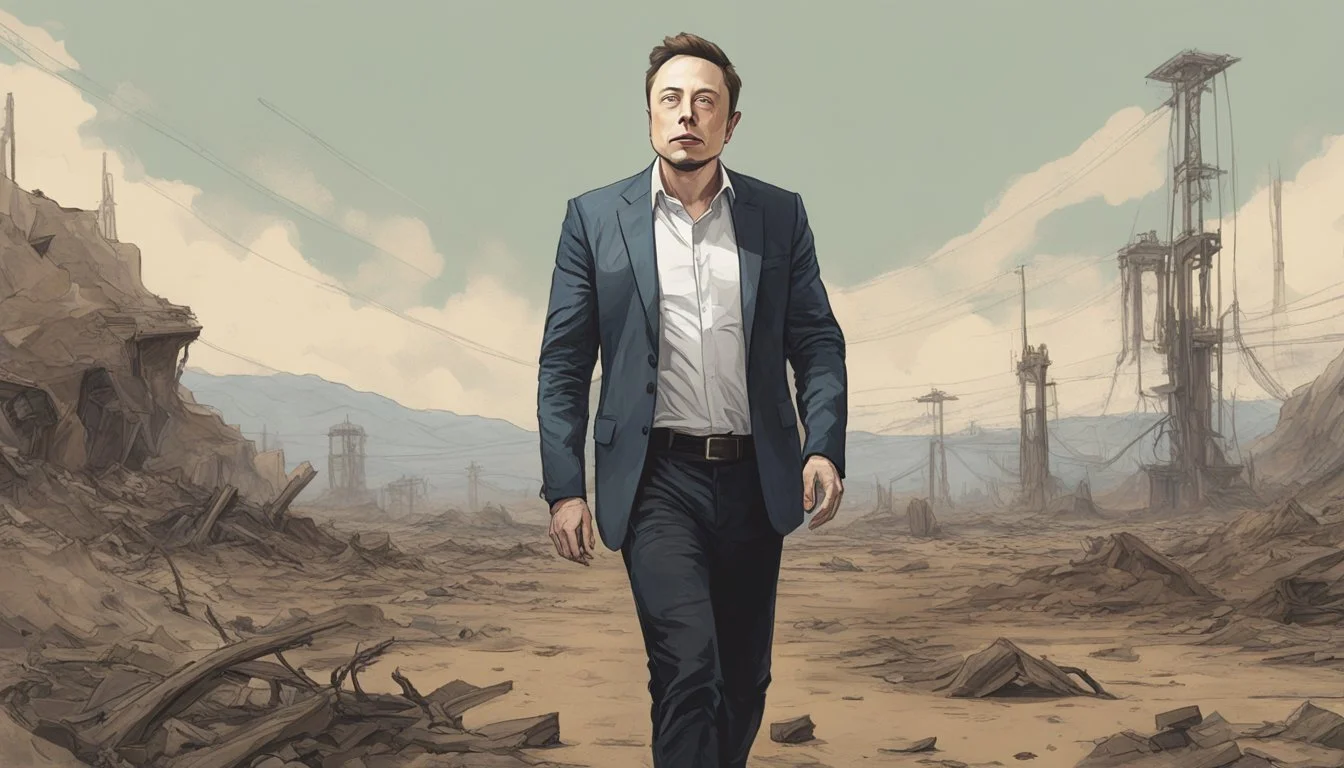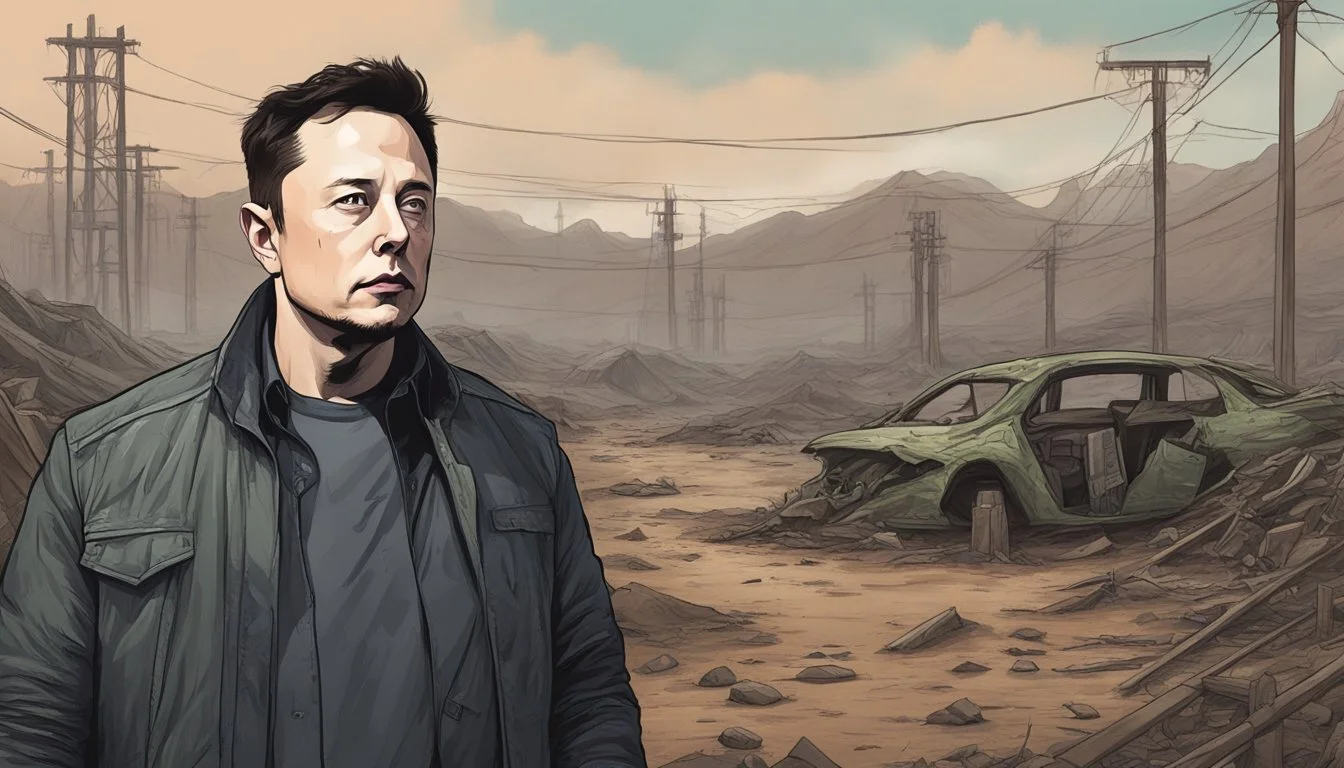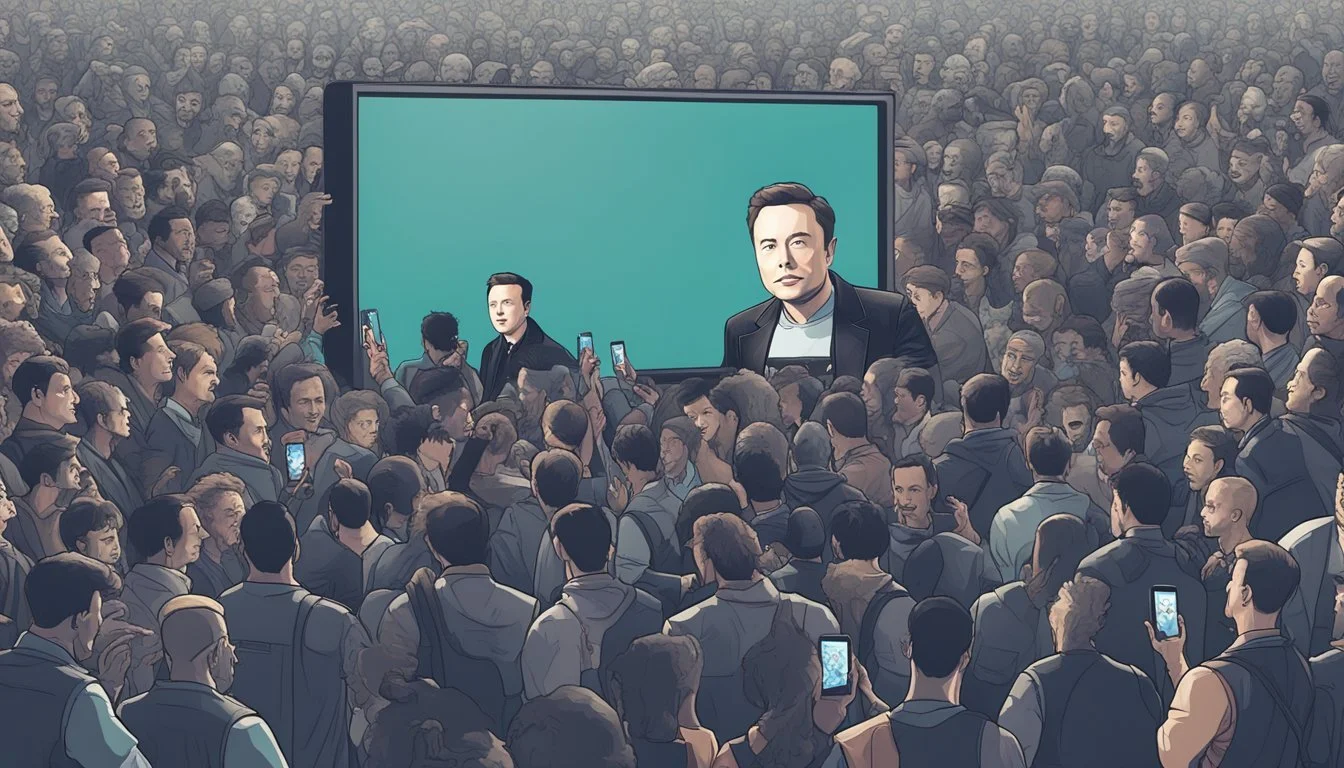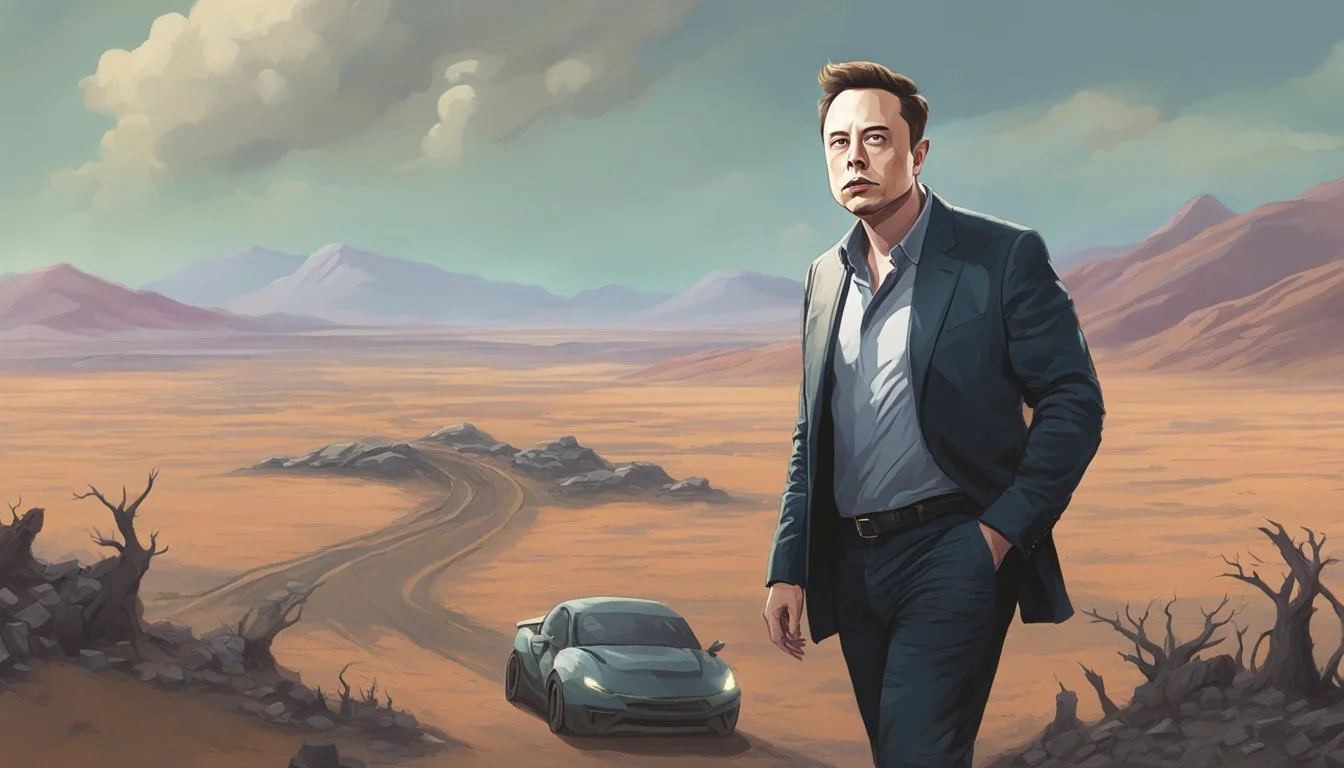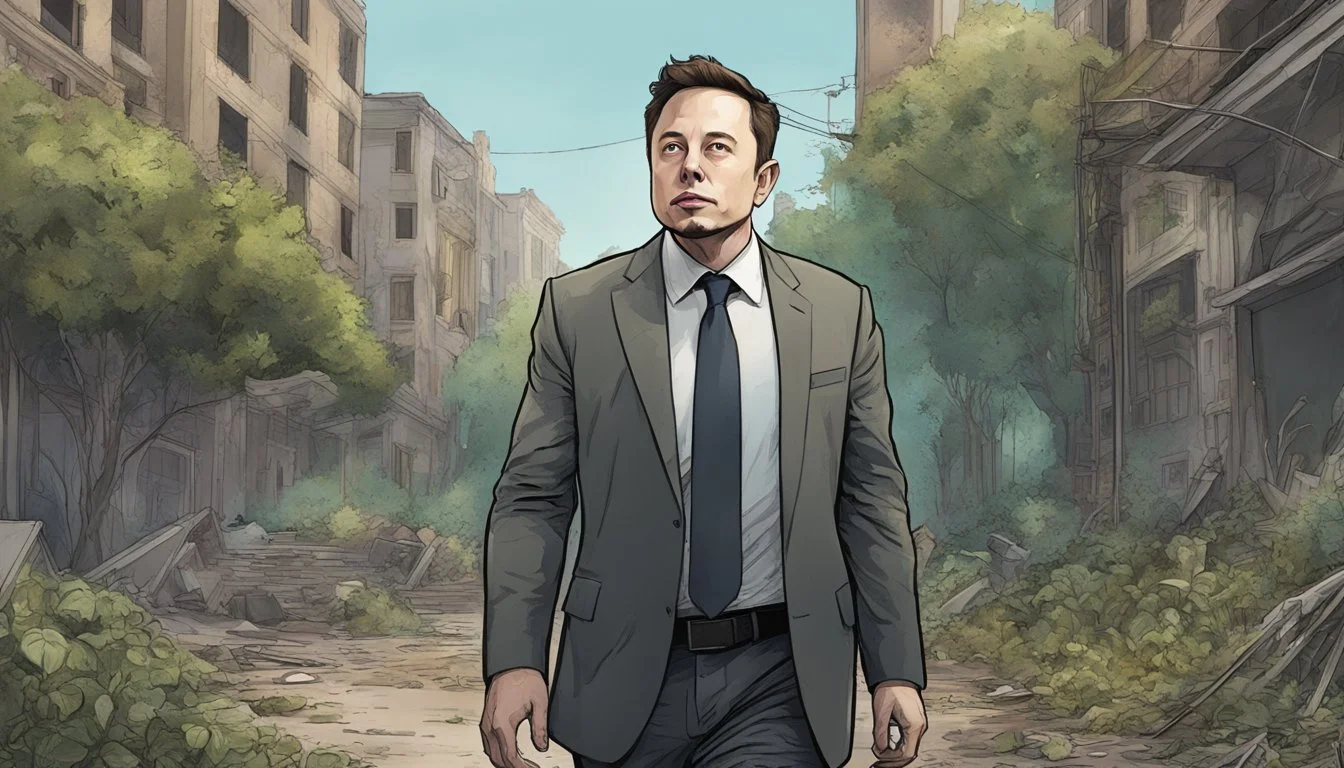Elon Musk's Zombie Apocalypse Claim: Did He Buy Twitter to Save Humanity?
Elon Musk's fascination with zombies has taken an unexpected turn in recent years. The billionaire entrepreneur made headlines by claiming he purchased Twitter to save humanity from a "zombie apocalypse." This statement came during a lengthy interview with Joe Rogan, where Musk elaborated on his concerns about societal decay and digital mind viruses.
Musk's acquisition of Twitter was motivated by a desire to preserve free speech and combat what he perceives as dangerous groupthink spreading across social media platforms. He likened the spread of certain ideologies to a zombie infection, suggesting that unchecked propaganda could lead to a metaphorical apocalypse of independent thought.
The tech mogul's comments have sparked debate about the role of social media in shaping public discourse. While some view Musk's statements as hyperbolic, others see them as a valid critique of echo chambers and algorithmic manipulation online. As Twitter undergoes significant changes under Musk's leadership, the platform's impact on free speech and information dissemination remains a topic of intense scrutiny.
Elon Musk's Profile
Elon Musk is a prominent entrepreneur and innovator known for his ambitious ventures in technology and space exploration. His companies have disrupted multiple industries and sparked public debate.
Career and Accomplishments
Elon Musk co-founded PayPal, revolutionizing online payments. He later founded SpaceX in 2002, aiming to reduce space transportation costs and enable Mars colonization. In 2004, Musk joined Tesla Inc. as chairman, becoming CEO in 2008. Under his leadership, Tesla popularized electric vehicles and advanced autonomous driving technology.
Musk's other ventures include Neuralink, developing brain-computer interfaces, and The Boring Company, focused on tunnel construction and transportation infrastructure. His companies have achieved significant milestones:
SpaceX: First private company to send a spacecraft to the International Space Station
Tesla: Produced the best-selling electric car globally
The Boring Company: Constructed underground transportation tunnels in Las Vegas
Influence on Technology and Innovation
Musk's impact extends beyond his companies. He has been a vocal advocate for sustainable energy and space exploration. His projects have spurred competition and innovation in multiple sectors:
Electric vehicles: Tesla's success prompted traditional automakers to invest heavily in EVs
Reusable rockets: SpaceX's achievements led to cost reductions in space launches
Hyperloop: Musk's concept inspired development of high-speed transportation systems
Musk's futuristic visions, including Mars colonization and neural implants, have sparked public interest in science and technology.
Public Perception and Media Presence
Elon Musk maintains a high-profile media presence, often using social media to share updates and opinions. His public image is complex:
Visionary: Praised for pushing technological boundaries
Controversial: Criticized for unconventional statements and business practices
Influential: Ability to move markets with tweets and public comments
Musk's acquisition of Twitter (now X) in 2024 further amplified his media influence. His management style and policy changes at the platform have been subjects of intense public scrutiny.
Musk's comments on various topics, from artificial intelligence to urban development, frequently generate headlines and debate. His unique blend of entrepreneurship and showmanship continues to shape his public persona.
Concepts of a Zombie Apocalypse
The idea of a zombie apocalypse has captured the public imagination, influencing pop culture, psychology, and survival strategies. It taps into primal fears while exploring societal collapse and human resilience.
Pop Culture Influence
Zombie apocalypse scenarios have become a staple of entertainment media. "The Walking Dead" popularized the concept, depicting a world overrun by the undead. Films, books, and video games frequently explore this theme.
Many works use zombies as a backdrop to examine human nature and societal breakdown. They often portray the struggle to maintain civilization in the face of overwhelming threats.
The genre's popularity has led to zombie-themed events, obstacle courses, and even emergency preparedness campaigns. This cultural saturation has made "zombie apocalypse" a widely recognized concept.
Psychological Impacts
The zombie apocalypse concept taps into deep-seated anxieties about societal collapse and loss of control. It represents a complete breakdown of familiar structures and safety nets.
Some psychologists suggest that zombie stories allow people to process fears about real-world threats in a controlled, fictional setting. The genre can serve as a catharsis for anxieties about pandemics, economic instability, or social unrest.
The idea of a zombie outbreak can also highlight concerns about dehumanization and loss of individuality in modern society. It raises questions about what it means to be human and the nature of consciousness.
Survival Strategies
Zombie apocalypse scenarios have sparked discussions about real-world survival skills. Many enthusiasts develop plans for resource gathering, fortification, and group organization.
Common strategies include:
Securing essential supplies (food, water, medical supplies)
Finding defensible shelter
Forming alliances with other survivors
Developing self-sufficiency skills
These plans often overlap with general disaster preparedness. Some emergency management agencies have used zombie scenarios as a fun way to promote readiness for actual crises.
The focus on survival highlights societal concerns about homelessness and resource scarcity. It prompts reflection on the fragility of modern infrastructure and the skills needed to thrive without it.
Elon Musk and the Zombie Narrative
Elon Musk's association with zombies has captured public attention through his social media posts, product launches, and comments on urban issues. This unexpected connection has sparked reactions and discussions about its potential implications.
Musk's Tweets on Zombies
Elon Musk has referenced zombies several times on Twitter. In 2018, he changed his Twitter bio to "Zombie Defender" while promoting flamethrowers from his company, The Boring Company. This move generated buzz and speculation about his intentions.
Musk also tweeted denials of creating a zombie apocalypse, responding to rumors that he might profit from such a scenario. His tongue-in-cheek responses further fueled the zombie narrative surrounding him.
In 2023, Musk likened downtown San Francisco to a "zombie apocalypse" when commenting on the city's homelessness and drug crisis. This comparison drew attention to urban issues while reinforcing the zombie theme in his public statements.
Public Reaction
Musk's zombie-related comments and actions have elicited mixed responses from the public and media. Some view his statements as humorous and engaging, appreciating his unconventional approach to communication.
Others interpret his zombie references more critically, seeing them as insensitive or distracting from serious issues. The flamethrower sales, in particular, raised concerns about safety and responsibility.
Media outlets have extensively covered Musk's zombie-themed statements, often analyzing them for deeper meaning or potential business strategies. This coverage has amplified the zombie narrative associated with Musk.
Potential Implications
The zombie narrative surrounding Elon Musk has implications for his public image and business ventures. It showcases his ability to generate publicity and engage with audiences through unexpected means.
For his companies, the zombie theme has served as a marketing tool. The Boring Company's flamethrower sales benefited from the zombie defender angle, demonstrating how Musk leverages unconventional ideas for business purposes.
The zombie references also highlight Musk's influence on public discourse. His ability to shape narratives and draw attention to issues, even through seemingly outlandish comparisons, underscores his significant media presence and impact on social conversations.
Innovations to Counter Hypothetical Threats
Elon Musk's companies have developed various technologies that could potentially be repurposed to address extreme scenarios. These innovations span transportation, infrastructure, and personal safety domains.
Transportation Solutions
The Falcon Heavy rocket, developed by SpaceX, offers unprecedented payload capacity. This capability could be crucial for rapid evacuation or supply delivery in crisis situations. Tesla's electric vehicles, equipped with advanced autopilot systems, may provide reliable transportation in chaotic environments.
The Boring Company's underground tunnels present a unique approach to urban mobility. These tunnels could serve as protected evacuation routes or secure supply chains in emergency scenarios. The company's high-speed loop system might enable swift movement of large populations away from danger zones.
Infrastructure Modifications
Musk's ventures have pioneered technologies that could fortify existing infrastructure. Tesla's Powerwall and solar roof systems offer decentralized power generation and storage, potentially maintaining electricity supply during grid failures.
The Boring Company's tunneling expertise could be applied to create underground shelters or command centers in urban areas like Downtown San Francisco. These subterranean spaces might provide protection from various threats while maintaining connectivity and functionality.
Personal Safety Equipment
While not directly related to zombie scenarios, some of Musk's projects have produced items that could be adapted for personal protection. The Boring Company's "Not-A-Flamethrower" gained attention as a novelty item but demonstrates the company's ability to produce handheld devices.
Tesla's work on advanced materials and manufacturing techniques could potentially be applied to creating lightweight, durable protective gear. The company's expertise in battery technology might also lead to long-lasting, portable power sources for personal safety equipment.
Social Media's Role in Mass Communication
Social media platforms have become central to how information spreads globally. These networks shape public discourse and influence societal views on key issues.
Spreading Information
Social media enables rapid dissemination of news and ideas. Users can share content instantly with large audiences. This speed facilitates real-time updates during breaking events.
Platform algorithms amplify popular posts, increasing their reach. Viral content can gain millions of views within hours.
Social networks also allow direct communication between public figures and followers. Politicians and celebrities use these channels to broadcast messages unfiltered by traditional media.
Fighting Misinformation
Social platforms face challenges in combating false information. Many implement fact-checking systems and add labels to disputed claims. Some remove posts that violate policies on misinformation.
Users play a role by reporting misleading content. Media literacy education helps people critically evaluate online information.
Debate continues on how to balance free speech with preventing harmful falsehoods. Finding effective solutions remains an ongoing process.
Elon Musk's Influence
Elon Musk's acquisition of Twitter in 2022 sparked discussions on free speech online. He framed the purchase as protecting open discourse and combating what he termed a "woke mind virus."
Musk implemented policy changes aimed at reducing content moderation. This shift altered how information flows on the platform.
His statements and decisions continue to impact debates on social media's role in society. Musk's actions draw both support and criticism from various groups.
The Intersection of Myth and Reality
Elon Musk's references to zombies and apocalyptic scenarios blend fiction with real-world concerns. His statements spark discussions about societal issues and technological impacts, while also tapping into popular cultural narratives.
Interpreting the 'Zombie' Descriptor
Musk's use of zombie imagery often serves as a metaphor for societal challenges. In a Joe Rogan Experience interview, he described social media as a potential catalyst for a "mind virus" zombie apocalypse. This language highlights concerns about information spread and cognitive manipulation in the digital age.
Musk's comments on San Francisco's urban issues also employed zombie terminology. He used the descriptor to emphasize perceived societal decay and economic struggles in certain urban areas.
These statements blend dramatic imagery with real-world observations, creating a powerful rhetorical tool to capture public attention and frame complex issues.
Real-World Applications of Zombie Themes
Musk's companies have developed products that humorously play on zombie apocalypse themes. The Boring Company's flamethrower sale in 2018 prompted Musk to jokingly address concerns about preparing for a zombie outbreak.
This marketing approach leverages pop culture narratives to generate buzz around technological innovations. It also demonstrates how fictional concepts can influence product development and public perception.
Musk's zombie references extend to discussions about artificial intelligence and social media impacts. These comparisons draw parallels between fictional scenarios and potential real-world consequences of technological advancement.
By invoking zombie imagery, Musk frames complex technological and social issues in accessible, attention-grabbing ways.
Business and Innovations in the Wake of Emergencies
Crises often spur rapid adaptations in business strategies and technological advancements. Companies and entrepreneurs pivot quickly to address new challenges and capitalize on emerging opportunities.
Market Responses
Economic upheavals during emergencies reshape market dynamics. Businesses adjust their operations to meet shifting consumer needs. For example, Elon Musk's companies have demonstrated agility in crisis situations.
Tesla rapidly repurposed car parts to produce ventilators during medical equipment shortages. SpaceX leveraged its rocket technology to deliver supplies to remote areas.
Some firms face tough decisions. In Downtown SF, businesses adapted to remote work trends by downsizing office spaces. This shift impacted commercial real estate markets significantly.
Innovation in Times of Crisis
Crises accelerate innovation across industries. Companies invest in research and development to solve pressing problems. Musk's Neuralink intensified efforts to develop brain-computer interfaces, potentially aiding those with neurological conditions.
The Federal Government often increases funding for critical research during emergencies. This support catalyzes breakthroughs in medicine, technology, and infrastructure.
Startups emerge to address specific crisis-related needs. Examples include advanced air filtration systems and contactless delivery technologies.
Reputation Management
Crisis responses can significantly impact a company's public image. Elon Musk's public statements and actions during emergencies have influenced Tesla's brand perception.
Businesses face scrutiny over their crisis management approaches. Those seen as profiteering often face backlash. Companies demonstrating social responsibility tend to build goodwill.
Advertising strategies shift to reflect changing societal priorities. Brands focus on messages of unity, resilience, and support. Some reduce spending on traditional ads and redirect funds to community initiatives.
Legal and Ethical Considerations
Elon Musk's "zombie" ventures raise complex legal and ethical questions. His unconventional approaches challenge existing frameworks and push regulatory boundaries.
Flamethrower Sales and Regulations
The Boring Company's "Not-a-Flamethrower" sparked controversy and legal scrutiny. While marketed as a novelty item, it raised concerns about public safety and potential misuse. Several states and countries banned or restricted its sale.
Musk argued the device was not technically a flamethrower, attempting to sidestep regulations. This semantic approach highlighted gaps in existing laws regarding unconventional products.
The federal government considered new legislation to address such devices. Local jurisdictions implemented varied responses, from outright bans to additional permit requirements.
Free Speech Nuances
Musk's acquisition of Twitter (now X) brought free speech debates to the forefront. His "free speech absolutist" stance clashed with content moderation practices.
X faced challenges balancing user expression with platform safety. Musk's decisions to reinstate controversial accounts sparked debates about online harm and misinformation.
Legal experts questioned the platform's liability under changing policies. First Amendment discussions intensified, exploring the role of private companies in public discourse.
Pre-order Policies and Consumer Protection
Musk's companies often use pre-orders to generate buzz and funding. This practice raises consumer protection concerns, especially for products with uncertain delivery timelines.
Tesla's pre-order system for new vehicle models became a focal point. Customers paid deposits for products sometimes years from production, leading to questions about refund policies and delivery guarantees.
The Federal Trade Commission scrutinized these practices. Consumer advocacy groups called for clearer terms and improved transparency in pre-order agreements.
Regulatory bodies considered updating guidelines to address the unique challenges posed by long-term pre-orders in emerging technologies.
Conclusion
Elon Musk's comments about zombies and apocalyptic scenarios have captured public attention. His remarks range from denying involvement in creating zombies to comparing social issues to a "zombie apocalypse."
These statements reflect Musk's penchant for provocative language and headline-grabbing analogies. His companies like Tesla, SpaceX, and The Boring Company continue to push technological boundaries.
Musk's acquisition of a major social media platform adds another dimension to his influence. He frames this move as an attempt to shape online discourse and societal direction.
While Musk's zombie references are metaphorical, they highlight his concerns about societal challenges. His companies aim to address issues like sustainable energy, space exploration, and urban transportation.
Musk's communication style blends tech innovation, social commentary, and attention-grabbing statements. This approach keeps him and his ventures in the spotlight, sparking both support and criticism.

